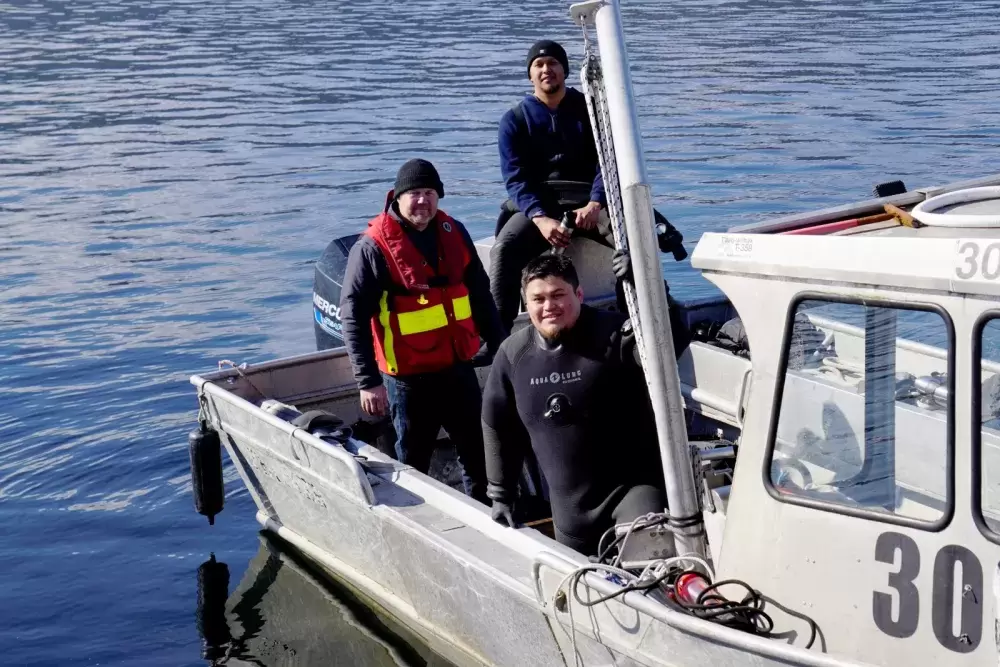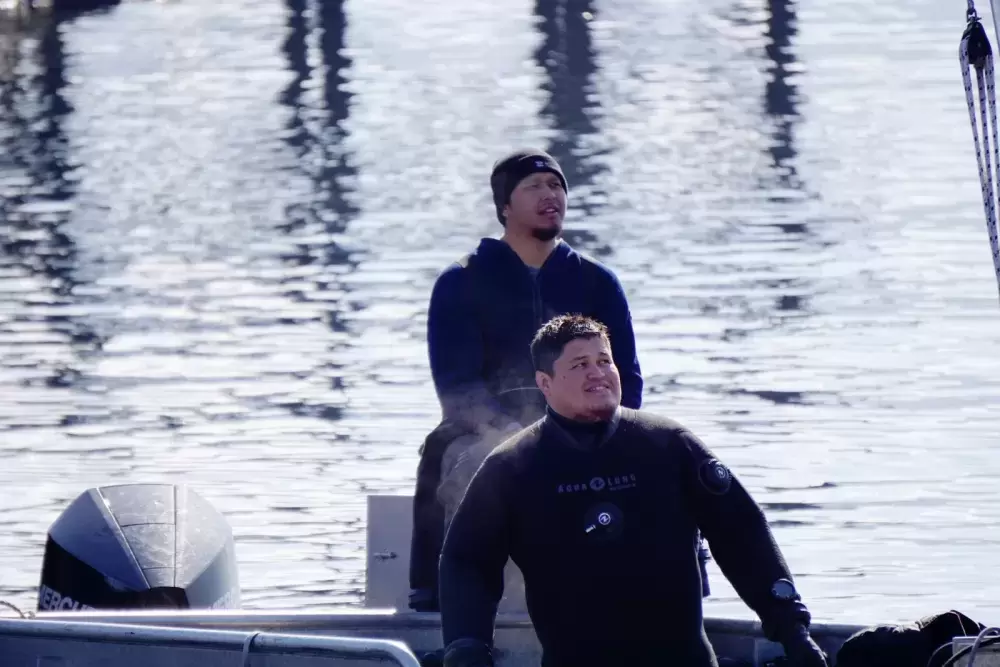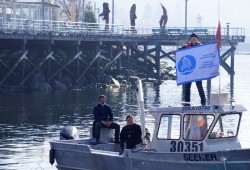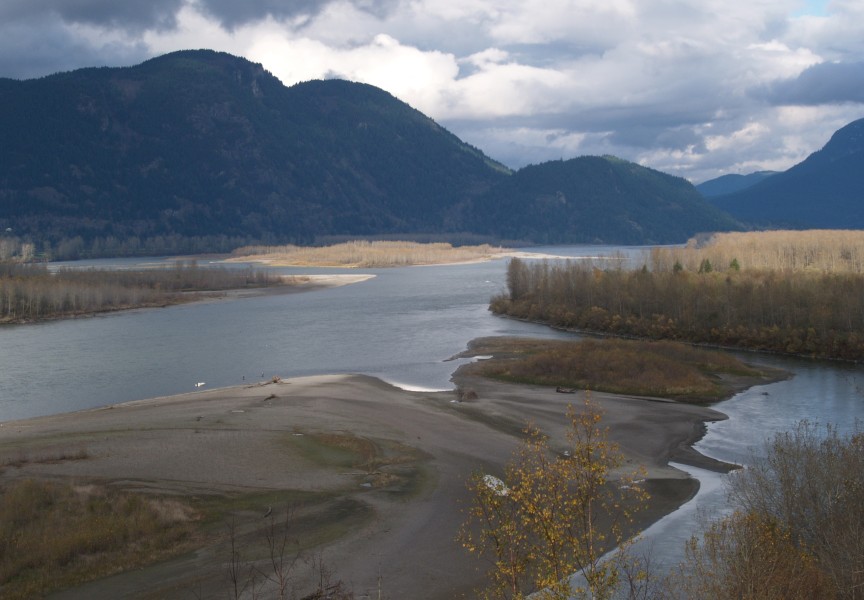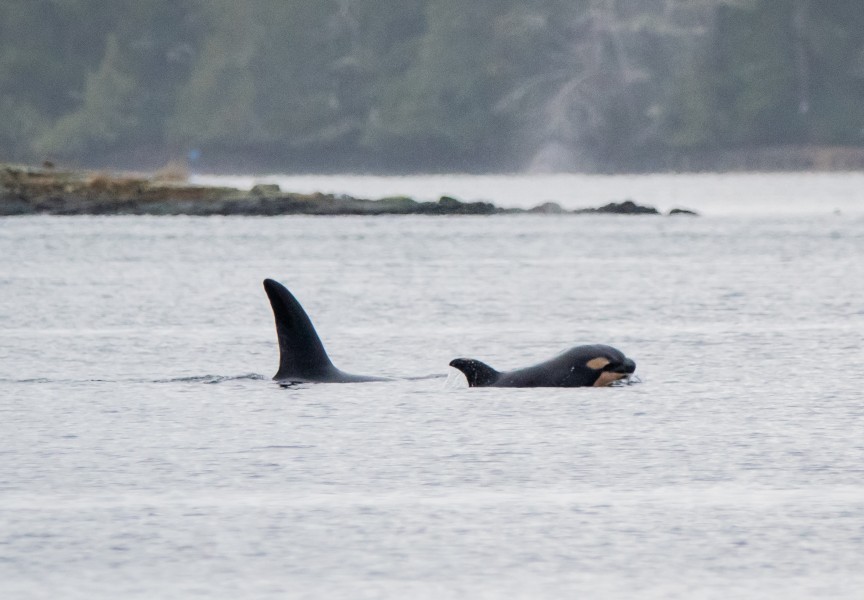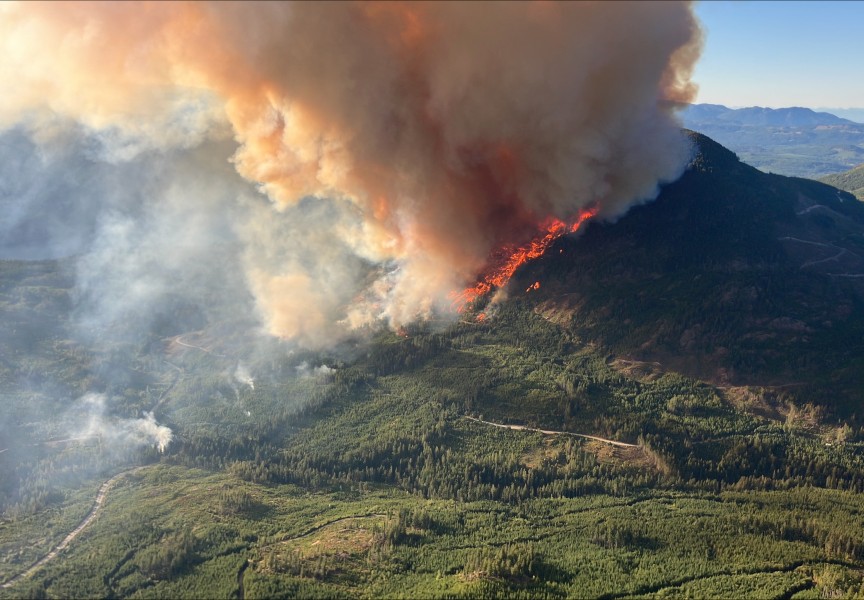An Indigenous-led dive team was busy last week scanning the waters of the Alberni Inlet for ghost fishing gear and garbage.
The team, consisting of lead Henderson Charlie, his brother Greg Charlie and nephew Jermaine Bulwer, all from Ahousaht First Nation, were contracted by the Coastal Restoration Society (CRS) to complete surveys of what they found while diving in the Barkley Sound.
The survey project is financed by the Ghost Gear Fund, which is resourced by the federal Department of Fisheries and Oceans (DFO) and has taken place in Sooke, Clayoquot Sound and Barkley Sound.
Henderson Charlie, who has been diving commercially since 2014, said his team was surveying between Canal Beach and Clutesi Haven Marina.
“We come out here, we see a bunch of crab traps, tires, garbage anything and everything,” Charlie said. “We’ve just been documenting everything we see to the best of our abilities. It’s hard to see what’s in the Port Alberni harbour because there’s so much mud and generations and generations of garbage left.”
Charlie said before cleaning anything up, his team will first record everything they find in the water and provide the survey to the CRS.
“After we’re done surveying, we’ll come in again with my dive team and a group of other people who work on the top side of things…we’ll start breaking things up and sending it to the surface,” Charlie said. “We’re here to come in and document what we see, send it forward to the government, and while we’re doing this, we’re coming up with a plan on what’s going to be the best, most efficient and safest way to retrieve the garbage that’s left down here.”
Charlie said his crew is mostly seeing garbage and fishing gear from the past couple of months on the ocean floor, but there’s also generations of garbage buried in the harbour.
“We can’t see it because the mud is so soft everything kind of just sinks under it, so we have to develop a plan to get what’s underneath to the best of our ability so we can take some stuff out of here,” Charlie said. “We’ll never get it all, but we want to get some.”
Capt. Josh Temple, executive director with the CRS, said the society was awarded $700,000 to perform large-scale ghost gear removals focused on lost fishing gear and abandoned aquaculture sites, and regional ghost gear surveys to “support DFO’s prioritized action approach for future removal projects along the West Coast of Vancouver Island and the southern Salish Sea.”
Temple said the CRS has goals to initiate First Nation-led projects.
“CRS is deeply committed to supporting environmental stewardship goals of host First Nations,” Temple said. “By working to support capacity building and training in specialized technical skills pertinent to large-scale environmental work, CRS has helped to create a career pathway for Indigenous peoples to engage in meaningful employment and contract opportunities in an environmental stewardship career that resonates culturally with First Nations stewardship values.”
Temple added that going forward, the CRS hopes to provide opportunities for hundreds of Indigenous peoples to enter this career pathway across the broader Vancouver Island and the Salish Sea region.
“We are working constantly to develop opportunities to ensure that host First Nations, provincial and federal governments are fully supported in their commitment to environmental stewardship goals.” Temple said.

